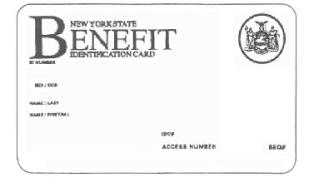What is a pooled income trust and how does it work

A pooled income trust is an arrangement that allows a person to have a charity manage their money in exchange for that money not being counted as their income for purposes of eligibility for Medicaid.
The way it works is as follows: Contributions to the pooled income trust can be used for one’s recurring living expenses, such as rent, food, clothing, entertainment and travel expenses, medical procedures not provided by government, attorney and guardian fees. It cannot, however, be used to pay for gifts, payments or loans to third persons, child support and alimony payments, vacation expenses of family members, health insurance premiums for other individuals, and the like. If there is any unused amount monthly, it can be accumulated for other expenses of the individual, but any unused amount upon death shall be transferred to the non-profit organization administering the pooled income trust.
The pooled income trust account functions similar to a managed bank account. The monthly non-discretionary bills, such as rent, mortgage, cable, healthcare premiums, etc., can go straight to the pooled income trust for payment. The variable expenses, such as food, clothing, travel and entertainment expenses, can be charged to a credit card, with such bill being submitted to the trust at the end of the month for payment.
In New York, to be eligible for Medicaid benefits, one must be over 65 years old (or under 65 but with disability) and with assets below $15,150 for a single person. In addition, one’s maximum monthly income (in 2021) should be $884 plus $20 for miscellaneous expenses. If a person has a monthly income in excess of that amount, it must be spent on Medicaid in order to be eligible for Medicaid. Thus, a person who has a monthly income in excess of $884 cannot claim Medicaid benefits. The law, however, provides an exception in the computation of maximum monthly income. If one makes monthly contributions to a qualified pooled income trust / pooled trust, these monthly contributions will not be counted in computing for maximum monthly income. For example, if one has monthly income of $2000, but makes monthly contributions to a pooled income trust of $1200, he/she (the “beneficiary”) can be eligible for Medicaid, and still use her monthly contributions to the pooled income trust to pay for her other living expenses.
There is some paperwork involved in applying for Medicaid with the spenddown paid instead to the pooled income trust. One needs to enroll in the trust and submit documents to the trust. Then, one needs to submit the trust with other required documents to the Medicaid program with a request to change the budget to reduce the surplus or spenddown. Lastly, you need to follow up and ensure the Medicaid rebudgeting is done correctly.
If you need an attorney to represent you in setting up a pooled income trust, you can give us a call. We are the Law Offices of Albert Goodwin and we can be reached at 212-233-1233.
